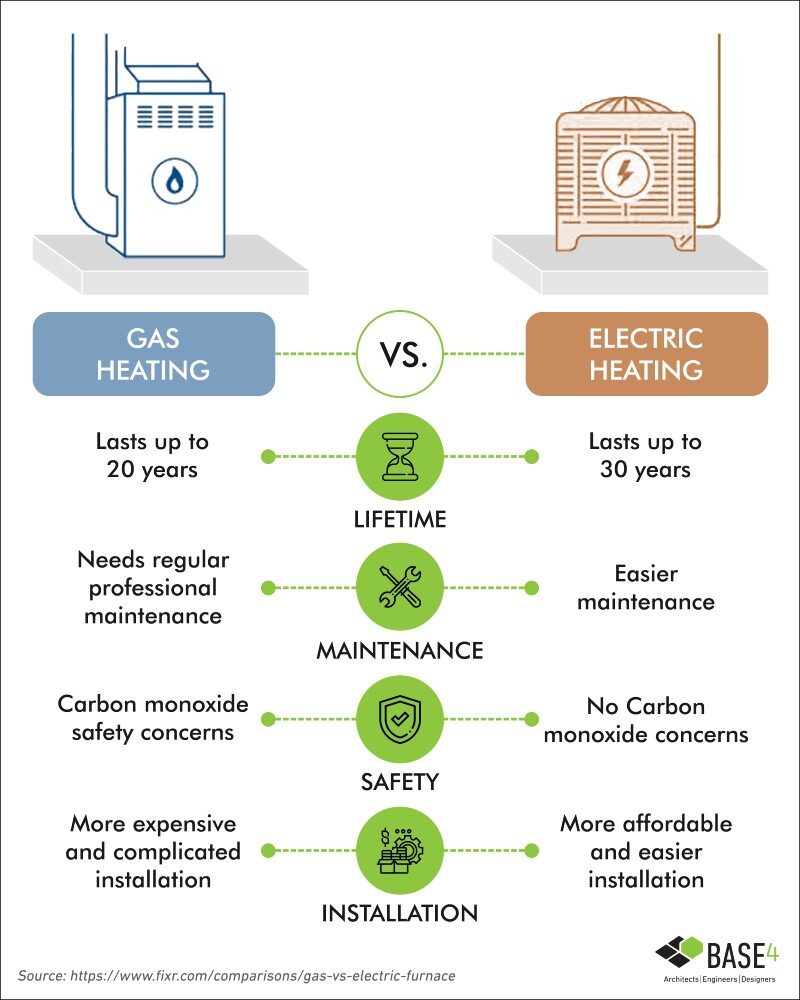how to tell if heating is gas or electric
When it comes to heating options, Florida residents have a choice between heat pumps and furnaces. Both systems serve the same purpose of keeping homes warm during the colder months, but they differ in terms of how they operate and the energy source they use. In this article, we will explore the differences between heat pumps and furnaces and discuss their respective advantages and disadvantages.
Heat Pump

A heat pump is a heating and cooling system that works by transferring heat from one place to another. In the winter, it extracts heat from the outside air and transfers it into the home to provide warmth. In the summer, it reverses the process and removes heat from the indoor air to cool the home. This dual functionality makes heat pumps an efficient and versatile option for homeowners.
One of the main advantages of heat pumps is their energy efficiency. They can provide up to three times more heat energy than the electrical energy they consume, making them highly efficient in moderate climates like Florida. Heat pumps also have lower operating costs compared to furnaces, as they rely on electricity rather than burning fuel.
Another benefit of heat pumps is their safety. Unlike furnaces, which burn natural gas or propane, heat pumps do not produce any combustion gases or byproducts. This eliminates the risk of carbon monoxide poisoning and reduces the chances of fire hazards in the home.
However, heat pumps may not be as effective in extremely cold temperatures. As the outside temperature drops, the efficiency of heat pumps decreases, and they may struggle to extract enough heat from the air. In such cases, supplemental heating may be required to maintain a comfortable indoor temperature. Additionally, heat pumps require regular maintenance to ensure optimal performance and longevity.
Furnace

A furnace, on the other hand, is a heating system that generates heat by burning fuel. It can use various fuel sources, including natural gas, propane, oil, or electricity. In Florida, natural gas furnaces are the most common choice due to their affordability and widespread availability.
Furnaces offer a high heat output, making them ideal for colder climates or homes that require fast and powerful heating. They can quickly raise the indoor temperature, providing immediate comfort for homeowners. Furnaces are also capable of maintaining a consistent temperature regardless of outside conditions, making them reliable and effective in any weather.
However, the use of combustion fuels in furnaces poses some risks. Carbon monoxide, a colorless and odorless gas, can be produced during the combustion process. To ensure safety, furnaces require proper ventilation and regular inspections to identify and correct any potential issues. Homeowners must also handle fuel storage and deliveries, which can be an added responsibility and expense.
Furnaces can be less energy-efficient compared to heat pumps, especially if they rely on fossil fuels. The cost of fuel can fluctuate depending on market conditions, potentially impacting heating costs. Additionally, furnaces tend to have a shorter lifespan compared to heat pumps and may require more frequent repairs or replacements.
In conclusion, both heat pumps and furnaces have their own advantages and disadvantages. Heat pumps offer energy efficiency, safety, and versatility, making them a popular choice in moderate climates like Florida. Furnaces, on the other hand, provide fast and powerful heating, making them suitable for colder climates or homes with higher heating demands. Ultimately, the decision between a heat pump and a furnace depends on factors such as climate, budget, and personal preferences. Consulting with a professional HVAC technician can help homeowners determine the best heating option for their specific needs.

